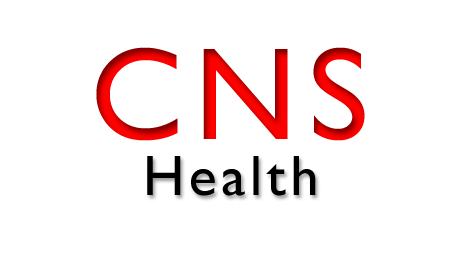COLLEGE PARK – Community health organizations in Montgomery and Prince George’s counties are working to overcome language barriers that have prevented non-English speakers from completing Obamacare insurance applications.
The state’s online insurance marketplace, the Maryland Health Connection, only provides application materials in English and Spanish. To meet the needs of Spanish-, French- and Chinese-speaking residents, representatives from CASA de Maryland and the Asian American Health Initiative have attended outreach events and developed their own materials on purchasing Affordable Care Act insurance plans.
Del. Ana Sol Gutierrez, D-Montgomery County, said organizations like CASA and AAHI should not be expected to fill the gap. Government entities like the Maryland Health Benefit Exchange should be responding to the concerns of non-English speakers, she said.
“They can’t assume the responsibility that our public health organizations at the county and state level need to be responsive to,” she said.
Delays in providing Spanish-language materials have inhibited the application process for non-English speakers, Gutierrez said. The Spanish-language version of the Maryland Health Connection resource site launched at the end of November, nearly two months after the English version of the online exchange rolled out.
A Spanish-version of the marketplace, where Spanish-speakers can compare plans and purchase health insurance just like they would on the English-version of the exchange, will not be available until the first quarter of 2014, according to the Maryland Health Benefit Exchange.
Despite this effort, Gutierrez said completing a health insurance application has been “extremely difficult” for Spanish-speakers. Unresolved concerns, she said, included the inability to compare plans in Spanish, the limited number of Spanish-speaking consumer assistance workers and the failure of the call center to answer questions about whether undocumented immigrants are eligible for the new insurance plans.
“It looked like the whole implementation had put Spanish speakers to the side,” Gutierrez said.
CASA de Maryland, a Latino and immigrant advocacy and assistance organization in the Capital region, is well equipped to serve Spanish- and French-speaking residents, said Michelle LaRue, the senior manager of health and human services for CASA de Maryland.
Five state-certified, bilingual consumer assistance workers, called navigators, are available seven days a week at each of CASA de Maryland’s five welcome centers. Two more navigators work in Spanish-speaking communities and attend outreach events. CASA de Maryland also has its own team of bilingual community health workers who are able to answer basic questions about the Affordable Care Act at outreach events.
Most of CASA de Maryland’s navigators are Spanish-speaking. One navigator serves all French-speaking clients, who make up 20 percent of all prospective enrollees visiting CASA de Maryland welcome centers, LaRue said.
LaRue said the most successful strategy for reaching out to non-English speaking consumers is through face-to-face conversations.
“The application is pretty long and asks a lot of detailed questions about family makeup and income,” LaRue said. “I think it really helps to have someone sit down with you who has been trained on this process to walk with you through the process.”
CASA de Maryland has been able to use Spanish-language resources and slideshows provided by the Maryland Health Benefit Exchange to encourage enrollment. But for Chinese-speaking residents, health insurance information in their primary language has been much more difficult to obtain, said Kate Lu, the clinic director for Pan Asian Volunteer Health Clinic, a program of the Chinese Culture and Community Service Center, Inc.
Lu said the clinic only has one certified, part-time consumer assistance worker to help Chinese-speaking residents.
“We do feel it is really not enough for Chinese [people] in the community,” Lu said. “We are trying to talk to the [Maryland Health Benefit Exchange] to persuade them to hire more navigators so we can have one on-site to provide services to people who really need the help but have the language barrier.”
Lu said 20 to 30 people stop by the clinic on Fridays—the only day the navigator is available on-site—to learn about the Affordable Care Act insurance plans, even if they are not yet citizens.
“Even if they don’t have the papers, they would love to know details so they can get ready for it,” Lu said.
To educate Chinese-speakers about gaining insurance through the Affordable Care Act, volunteers host seminars, attend health fairs and write articles in Chinese about health insurance updates.
Many of the Chinese-language resources Pan Asian Volunteer Health Clinic utilizes were composed by members of the Asian American Health Initiative, Lu said.
Perry Chan, the program manager with the Asian American Health Initiative, said his organization created fliers in seven different Asian languages to teach consumers in Montgomery and Prince George’s counties about the Affordable Care Act.
“Based on our outreach experience we found that we needed some materials in very simple, straightforward, clean language to educate our community and increase their awareness,” Chan said.
Similar to CASA de Maryland, Asian American Health Initiative also has a team of outreach volunteers called health promoters who work in Asian-American communities to educate consumers about enrollment.
“Health promoters are the ones the community trusts. They know the culture because they have come up from the community and speak the language,” Chan said.
Chan said Affordable Care Act enrollment and outreach efforts have given the Asian American Health Initiative the opportunity to collaborate with other community organizations and inform their community in a “culturally and linguistically competent way.”
“We just want to talk to every single person to ensure they have at least heard briefly about the Affordable Care Act and where to sign up,” Chan said.
Ultimately, Gutierrez said, the Maryland Health Benefit Exchange needs to provide English and non-English speaking residents “access to information and services that allow them to sign up in an informed way.”
“It’s not just filling out an application and signing it. There are decisions to be made. Those are complicated in any language,” she said.

